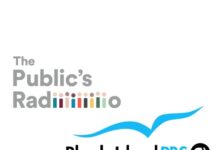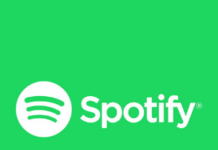
(By Radio Ink Chairman Eric Rhoads) I’m afraid I have to be critical of the NAB. Facebook and Google are the competition to radio, according to the National Association of Broadcasters, and that is why the NAB is pushing for further deregulation at the FCC.
The NAB wants to push ownership limits to eight FM stations and unlimited AM station ownership in the top 75 Nielsen Audio markets, and they want to reward participation in an FCC incubator program with an additional two FM stations, for a total of 10 FMs under one owner in those markets. According to the NAB, this program will help radio compete with the two Internet giants, Facebook and Google.
That argument is as silly as saying that more TV stations would overcome YouTube’s power. It’s like saying that adding more inventory will sell more product, even though there are no additional buyers. It’s like saying hiring more salespeople at a station will result in more ad sales. (The last might be true, briefly, but you’ll soon reach the point of diminishing returns.)
Though I hold the NAB and its board in high regard, I feel the need to call them out on this argument.
Well over 10 years ago, in these very pages, I warned radio that we would be in exactly this position and having exactly these arguments. I outlined how and why Google and Facebook were in a position to take local ad dollars and said it was already happening before our eyes, though others didn’t see it. I outlined what radio needed to do then, early in the game and before these giants got bigger, so we could survive. I recommended collaboration.
Over the years these and other strategic ideas fell on deaf ears, and most of the e-mails I received scolded me for being so negative: “Eric, we’re in the radio business. We are bigger and better and have loyal audiences. We won’t ever have to worry about the Internet. Stop talking about the threats of the Internet to radio, it will never happen. Show that you believe in radio.” Frankly, I still get those e-mails, which means some still have their heads in the sand. I write these things because I have radio’s best interest at heart.
The FCC is made up of very smart people who, hopefully, understand that giving radio more stations is not going to solve the Google, Facebook, Instagram, Snapchat problem. I dare say that ship has sailed and that radio’s ability to compete with the Internet isn’t going to be impacted one ounce by having more stations per owner.
The only similarity between Google/Facebook and radio is that we’re all in the advertising business. That’s where it stops. Their approach to advertising is so utterly different that no one is going to spend more in radio because Company A or Company B has more stations. Putting more stations in the hands of someone who is not capable of competing with the stations they have already isn’t going to make a difference.
I spend buckets of money marketing my other businesses on Facebook and Google (I also buy radio), and I can tell you that this is not an either-or advertising scenario. Facebook and Google have become essential marketing tools. I use Google so my products show up when people search terms related to my businesses, and so that if they visit my page, I have the ability to keep putting ads in front of people until they buy. This remarketing/retargeting is also essential on Facebook, and it allows me to use hypertargeting I cannot get elsewhere. No, not even on radio.
Each of these media has strengths and specific purposes, as does radio. If radio is losing business to the Internet, it’s because we’re not telling the right story and helping advertisers understand the benefits of using radio to enhance these online campaigns.
There is evidence that the cost per lead goes down in search when radio is added.
There is evidence that radio is the best tool for driving preferences in search.
Radio can, in fact, get consumers to choose a particular business when searching a category, even if it is not in the top 10 search results. With radio, you can tell your audience, “When you’re searching restaurants here in Cincinnati, we may not show up number one in search, but scroll till you find Eric’s Restaurant, where you’ll get amazing food.” Implanting that kind of pre-search message works every time — I know that because it’s the secret weapon of a major ad agency that doesn’t want anyone else to figure it out.
Smart advertisers have realized that supplementing search is one area where radio shines, and it makes radio more relevant and taps different advertising budgets than those allocated to search. You can overcome the hierarchy of search results to drive people to your business. In fact, the cost of doing search in conjunction with radio as an add-on is often lower than spending on Google’s increasing ad rates to get in the top 10 in search results, especially in a popular, high-cost-per-click category.
Those same advertisers will also tell you that their search results increase organically, without spending more, as people put the advertiser’s name in to search it directly, or scroll down to click on it. In fact, it’s been found that radio can totally manipulate search results and be used to drive organic search higher. (Not to mention all the other benefits of the exposure.)
To think radio will take dollars out of the pockets of Google or Facebook is folly. The mere assertion shows that the NAB is either trying a tactic because they need a “good argument,” or they simply don’t understand the online world.
Sadly, my interaction with most of my radio sisters and brothers has indicated that most don’t have much, if any, understanding of the depth of offerings available from Google and Facebook, how effective they are, and how trackable their results are.
For instance, in my company we receive a minimum of $4 in sales for every dollar spent, and in some campaigns as much as $16 for every dollar spent. I can look at a dashboard and see results by the hour, and make adjustments and test new concepts instantly. If something newsworthy happens in the world, I can go to my dashboard and change a campaign headline instantly to reflect that event, and that drives clickthrough rates through the roof. And I can track who is buying, then click a button and model an audience with the exact same metrics as those who bought, and those people end up buying too.
To go to an advertiser without knowledge of this depth simply makes radio people look uninformed. Yet if we understood our strengths in conjunction with these tools, we would sell more Google and Facebook advertisers on using radio to enhance their campaigns. Radio isn’t going to take money away from Google and Facebook, but it can convince people to add budget to make Google and Facebook more effective.
The reality is that Google and Facebook’s advertising income would not be dented if radio had 10,000 more major-market FM stations (though radio’s would, because it would cannibalize itself even more).
Further deregulation may or may not benefit radio. That’s for the FCC to decide. My take is that it deepens the problems we already have and will only cause more pain down the road. There are, however, things the FCC could be doing to actually help radio. I’ll save that for a future editorial.
There is no doubt that budgets have shifted to digital. Two years ago, at our Radio Ink Forecast Conference, a major ad agency executive told us that all of his clients were shifting 80 percent of their budgets to Google and Facebook. He also told us that radio would never see any of that money with its traditional approach and that radio needed not to resist, but to join the party by offering truly valuable benefits to these advertisers that enhanced their spend. That same day, a panel of group heads, none of whom were in the room for this advertiser’s speech, said Google and Facebook were not a problem. Who turned out to be right?
If radio now truly does believe its problem is Google and Facebook, the solution isn’t more stations in the hands of fewer people, but extensive research, strategy, and training to get advertisers to understand how radio can enhance their campaigns and make them significantly more effective.
Out of one side of our mouth we’re telling people that radio has more reach than Google, while the other side is saying we can’t survive against the Internet without more deregulation.
If the FCC decides to deregulate further, it should be for a valid reason, not to continue this fool’s game that says it can help radio better compete with Google and Facebook.
Eric Rhoads is Chairman of Radio Ink Magazine and can be reached at [email protected]






The ratio of salespeople to radio staions in most companies today is mathematically in the salespersons favor. They are drowning in inventory to sell and have fewer radio salespeople in house and across the street as competitors. A commitment to sales education and staffing is required to move the sales needle.
If the grass is greener on the other side of the fence, maybe they water and fertilize their grass better.
After over 54 years in small market radio, from “go-fer” to Pres/GM I have figured out why I was successful when I was allowed to “do it my way”! When resuscitating; or building a new station I never worried about profit/sales until the product was “right”. Build programming & personalities along with community individualism that empathy & your “gut” demand…build it and $$$ will come.
On top of the other standard-issue, legitimate complaints, Americans, compared to other nations, have their markets horribly stuffed with way too many signals.
A severe culling is in order anyway, and diminishing revenues may end up as the driving force of that eventuality.
Even after that gets sorted out, it will still be incumbent on the remaining owners to start providing viable and valuable products and services – not that there is much chance of that.
The horrible, horrible irony is that radio has magnificent potential – for audiences and advertisers, but owners have no clue as to how those properties can be advanced.
“The Story.” Does this story include the parts about shoddy content, slipshod production and crammed logs? I thought not.
There is no way back at this point. Radio has passed the event horizon. Let go and allow it to burn in the sun. It’s the only path forward for a real broadcasting future. The Phoenix awaits to arise.
First of all, it’s not just Google and Facebook. It’s all of unregulated media. Google and Facebook are just examples. But you could also add Pandora and Sirius to the pile.
I don’t understand why anyone would object to removing ownership limits on AM, or removing AM from market caps. AM is in trouble, and the FCC knows it. That’s why they came up with the AM Revitalization Plan. So changing ownership rules for AM shouldn’t be an issue for anyone.
The reason owners want more FMs is because the FCC has overcrowded the band with LPFM and translators. An FM license isn’t worth what it was 20 years ago simply because there are more stations on the FM band. That’s the exact situation that Docket 80-90 caused in the 80s, which ultimately led to changes in ownership limits in the 90s. The article doesn’t address that overcrowding of FM that has been caused by the FCC itself. Talking about radio ten years ago or more is completely irrelevant.
Re your point about low power FM’s and translators… ok, fine. Then open up the FM cap ONLY on low power FM’s and translators. Keep the cap on full-power FM stations. And if you are correct about radio 10 years ago being irrelevant now, by extension that means that radio executives and leaders who have been in the business for 15, 20, or more years…now have irrelevant belief thinking about radio. Old men (40 years and older) … including a guy likes Bob Pittman in his 60’s… think way too corporate, and love to insulate themselves with Regional VP’s, Corporate VP’s, and more. That is old school thinking. In the new business world, companies have streamlined their management, the top executives are accessible, decision-making ability is pushed down to the front lines, and meetings and reports are kept to a minimum. All of these trends are the exact opposite of the behavior of the major corporate radio station groups!
“Then open up the FM cap ONLY on low power FM’s and translators.”
That makes no sense. Clutter is clutter, no matter how big it is. The issue isn’t the size of the station, but the number of licenses in a market. It’s doing what Docket 80-90 did, which is dilute the value of the license.
One sentence in Eric’s missive pretty much says it all…
Putting more stations in the hands of someone who is not capable of competing with the stations they have already isn’t going to make a difference.
Now that’s practicing “word economy.”
👍
Owning more stations is not the answer, content is the answer, you have data and you have common sense and skill. And when a station owner uses both of those to work together. Great benefits come through. No one in another city is going to the AM dial to listen to a second or third tear national talk show host. You want to drive the market, “go local”.
For all of their abilities to provide specific data, it is abundantly clear that Social Media is quite anti-social in its deployment. Branding a business in a sea of hostility is fraught with possible pitfalls.
There is a longing for a non-vulgar locally influenced entertainment and information medium where the business controls 100% of the message, where competitors cannot sabotage your image with phony reviews and where someone takes ultimate responsibility for its content.
Welcome, or should I say, welcome back to local broadcast radio. That’s our USP and we are winning!
Yes, and no Eric. Yes, radio can direct additional people and enhance internet searches. Clearly, this is the path to success for broadcasters in the future. Yes, to the idea more radio stations, more audience, is better than less per owner. The lack of vision and entrepreneurship skills by station ownership will allow for a new generation of ownership to implement the correct skill sets needed. Personalities, similar to the founders of CBS,ABC, and NBC radio. More radio good, different mindset better.
That’s the smartest thing I have read on RadioInk. I hope salespeople reading this take note, and instead of bashing the competition LEARN about them and how our clients benefit from working with them. Then, mold your story from there. Increasing Organic search, etc. It’s not about “us vs. them”, but about a proper media mix now more than ever.
Wow, this was not a position I ever expected to see published here by Mr. Rhoads. Bravo. It’s nice to see people are finally starting to get it. Big Radio isn’t interested in making their product better… more creative, more dynamic, better serving the listener…. each seemingly just want to gobble as big a piece of the pie as they can to limit competition in lieu of improving their product. Few companies owning more signals will not improve the industry…. it will just continue to slowly kill it as it has been doing since the 90s.
The animals being stampeded over the cliffs of Head Smashed In Buffalo Jump were never informed they were sacrificing themselves to the needs of another species.
Maybe the herds, at the moment of realizing their fate, told each other they were going to a “better place”.
Radio, however, cannot claim that kind of ignorance or take any comfort from those kinds of delusions.
Eric, Very motivating thoughts on radio.
Respectfully, it seems to me that Genuine Innovation / Bold Risk Taking is the only way to drive bonafide growth in radio. As an example, I took the chance on introducing 24/7 Christmas music at KOST 2 months after 9/11 because in part there was dramatically less revenue risk at the time and I had seen it working in Arizona for years prior but no one would put $10s of millions of AC revenue at risk to flip format in NYC or LA etc…
LA was far enough away from ground zero on 9/11 that we could still think straight, but alsol had very little AD revenue on air a month after as well — So 24/7 Christmas music seemed to me to be a way to assist in “turning the page” from 9/11 a week before ThanksGiving 2001. My only child was born 12/30/01 and I wanted to do all I could to make the place better for his arrival, so this is all extremely vivid to me. We all know in radio that until something works big in NYC or LA it is not a HIT in the rest of the US radio business. If a great idea can bubble-up to NYC or LA and someone greenlights it in these markets then it works in radio! If folks in radio are honest with themselves they know that there is no one else in the radio biz who would have been willing to take a chance on flipping a $28mill+ a year AC station to 24/7 Christmas music before Thanksgiving a few months after 9/11 in NYC or LA other than someone like me and for a crazy reason like hoping to make the place better for my son coming into the world a month later?
2 months after 9/11, none of the radio stations in the US were billing the sorta money that caused apprehension to try something “out of the box” but only KOST acted on launching 24/7 Christmas music before Thanksgiving in this unique post 9/11 window. Timing is key to innovation! Right idea+Wrong time = loser or enough apprehension to never try a new idea, even worse etc…
KOSTs’ rating success with 24/7 Christmas music 2 months after 9/11 was also not the happy-go-lucky version of Christmas music that was working previously in Arizona for many years prior with no one copying it (Schlitz was the first light beer but none really cared until Miller Lite, the concept was not a hit) — KOSTs Christmas music post 9/11 was one of comfort food / fond memories of a time before 9/11 — Caller montages about family and what truly matters etc…
The thought a few months after the rating success in 2001 was that the 24/7 Christmas music at KOST served as a way to console folks in a tough time but not something to be repeated in 2002 by the incoming Radio Regime at the time. Taking the attempted cancellation calls from advertisers is the best way to know you are a pioneer. Despite the big ratings in 2001 for KOST with the first Top Makret 24/7 Chrimas Music risk on an big billing AC, we would not have done it in 2002 because it was thought to be a “stunt” connected to 9/11 emotions and unsellable in normalized time –Only reason I did it on KOST in Year 2 was because Disneyland called and offered to underwrite it and have a private party for the kickoff in year two just before Thanksgiving ’02. Disney liked the idea that someone other than them was leapfrogging in a big way to Christmas ahead of Thanksgiving! 🙂
The biggest audience each year in radio is still Christmas music and it really is an innovation that happened at a time that someone in NYC or LA could take a bold chance with $10s of millions in billing on the line and change the format for a month+ to try something like this — Otherwise never happens – Too much at risk for “normally risk adverse good people” to try this sorta thing in NYC or LA — And the risk adversion is the real hurdle for radio — Notice the pioneers, they are the ones with the arrows in their backs! I find very few folks who even believe the story about how the 24/7 Christmas music format became a mass hit in the industry and as such, they will not likely be on the lookout for the “Black Swan” (great book on how to innovate vs optimize an existing business plan) when he or she swims by.
My colleagues seem to see this issue much clearer than any trade association/politician. Does anyone seriously believe that bigger is better in the radio business? Look at the facts.
Large group owners abused the privilege of ownership and destroyed radio. Now they want more stations? I’ve been to clusters with 7 or 8 stations, and 6 of them have no live personalities. Radio has lost its soul. Radio is a dated technology, and unless it embraces digital platforms and realizes personality is the key to its future, it’s doomed to become the betamax and cassette of the future. I’m so sick of smiley, optimistic CEO’s and consultants acting like there’s nothing wrong with radio while they leave the bodies and careers of personalities behind them.
Personality is exactly correct. Everony is currently fawning over the Podcast Convention and talking about how exciting the potential is there. But Podcasting is 100% about original content and personality… basically talk radio. Which are things that radio has spent two decades turning its back on and telling everone was not profitable.
It’s hard to take the radio industry seriously.
There LBO landsharks did ruin Radio and never understood what made it work in the first place. Radio used to have soul and even some of the shitty block-formatted teakettles I suffered through in my early career had something UNIQUE to offer their communities, even if the presentation was lacking. Now, major market stations have become homogenized with sat and voicetraks. Can’t even handle timechecks anymore. These genius operators who’ve managed to take the TWO BIGGEST consolidators into BK-land deserve more, not less competition because they’ve screwed the pooch, cooked the goose and should rightfully go out of business, not get more Radio stations to stick a fork in.
I enjoyed your points made regarding sales. Good stuff..
Eric,
I totally agree. I am repeatedly asked if KCAA is “making money”. My answer is always the same. Well, I think I’m doing a little better than those “major” companies with hundreds of stations who are bankrupt.
The only thing more consolidation will accomplish is a short term land rush with Wall Street backing that will benefit smaller companies that sell their operations to larger companies. The influx of cash to the industry will become an exit strategy for some smaller broadcasters and more non serviceable debt for others and in the end, it won’t attract one more listener or generate a single dollar of additional advertising sales. It’s another bad move in a zero sum game that will accelerate the stampede toward the buffalo jump.
Anyone not seeing your point Fred, is not paying attention to history after consolidation began in the 90s.
I hear the thunder of the stampede every day